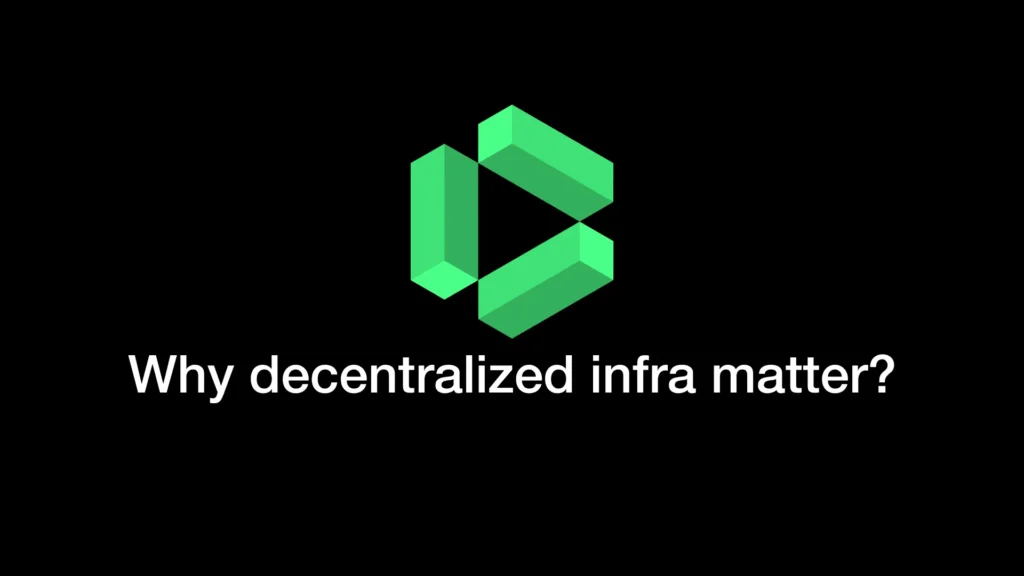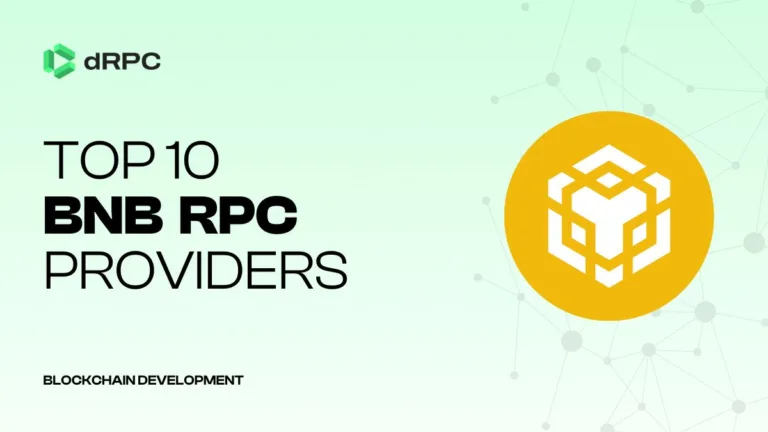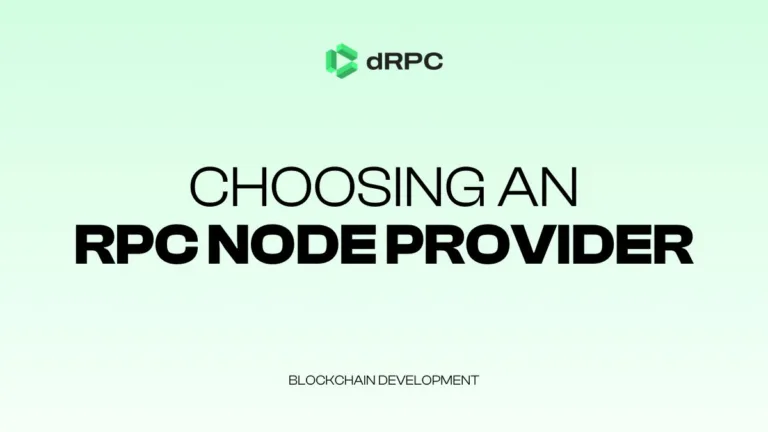Introduction
Decentralized RPC services are one of the vital core components of the entire Web3 ecosystem. And all of us should educate the community and newcomers about it to improve ecosystem decentralization, reliability, and overall quality of services.
That’s why we are working on dRPC.org. It’s a decentralized RPC service that will be managed by the community:
- Thousands of RPC providers around the world
- Uniq balancing system not only for commercial but also for public nodes
- Flexible, unlimited scalability with the best possible latency
- Best possible price, based on the auction model, without packages and pre-commitments
- Data verification between several RPC providers for the most sensitive requests
- Easy to start model where your crypto-wallet is your key to RPC services
- Crypto native system where payments from data consumers to RPC providers work via stablecoins, not “yet another altcoin”
Basically, each dev could launch the Ethereum node and use it for application needs. But it requires additional knowledge about infrastructure, time on setup and maintenance, and money on servers that will be used on some small percentage of real capacity. That’s why a majority of Web3 developers prefer to use 3rd party RPC nodes.
Types of 3rd party RPC nodes:
- Public nodes
- Commercial nodes
Public nodes
Here are pros and cons of public RPC nodes.
Pros
- it’s free
- easy to use
Cons
- medium to low quality
- low capacity
- low to zero customer support
- no guarantees that it will not be stopped tomorrow
Commercial nodes
Here are the pros and cons of commercial nodes.
Pros
- it has limited free plans (for the beginning of your Web3 journey)
- easy to use
- medium to high quality
- high capacity
- medium to high customer support
- some guarantees that it will exist for the long term
Cons
- costly after some point in time
- centralized point of decisions
- potential censorship
- possible spontaneous increase in price
Based on the comparison above, commercial nodes are much better because they have some level of guarantee. They are also not so expensive in the beginning and are ready to use in several minutes with a quite good level of quality. These points made Commercial nodes from 3rd party companies the preferable option for the majority of developers.
And it’s a good simplification of the process, especially when you just start development of your dApp. Somewhere in the future, you will set up your own nodes or fix all possible issues somehow else. But all of us have too big backlogs, full of “significant” and “really important” features, and solving potential RPC problems usually postpones.
That’s why the Web3 community has really huge concentration of dApps on 3 major centralized players: Alchemy, Infura, and QuickNode.
It’s a technical debt that will never be repaid in most cases, and it makes Web3 more centralized day by day.
Constantine Zaitcev
Many teams understand that it’s a severe problem and started to create decentralized RPC services. Some of the old Web3 players and new dApps teams making the transition from “Big 3” to these services and it’s a great beginning.
With DRPC, Web3 developers have maximum flexibility. They may have their own Ethereum and EVM-based nodes, use them as much as they need, and provide the remaining part for other data consumers. Or they could use RPC nodes from other data providers, and pay only for consumed resources, without packages and any pre-commitments.
We are really excited to make this huge step for Web3 as a core dev team of DRPC.org and invite you to join us. Let’s make it decentralized, reliable, and truly censorship resistant together!




